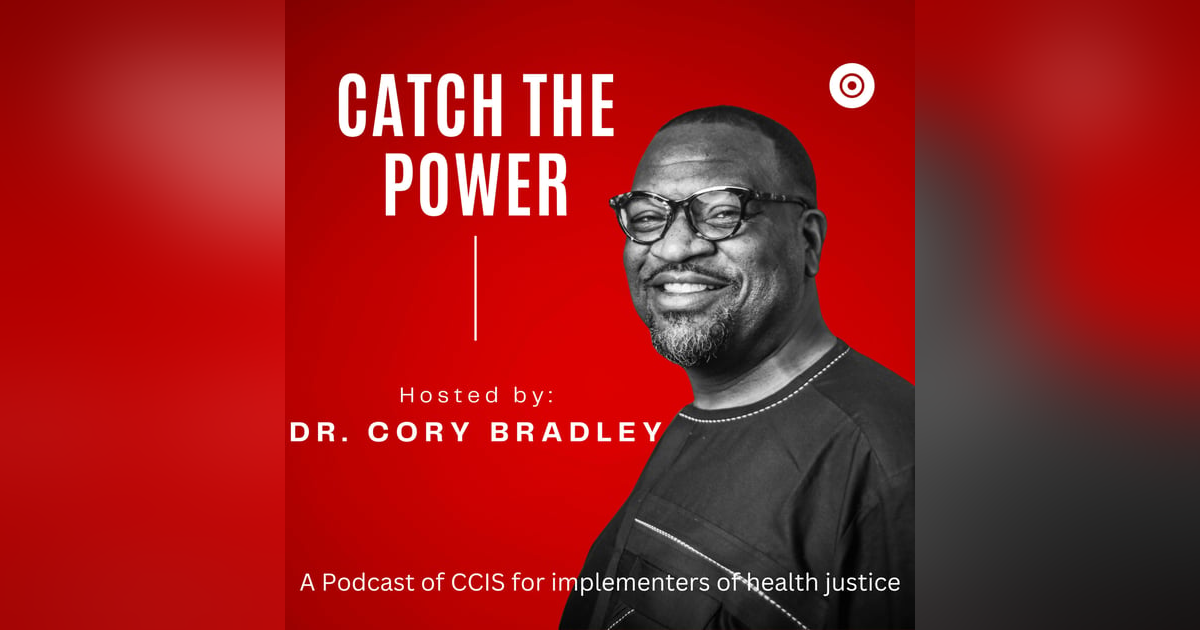
Sign up to get updates from us
By signing up, you agree to receive email from this podcast.

Racism continues to be pervasive and permeates every aspect of living, including healthcare. With the CDC having declared racism a serious public health threat, such consideration must make its way to the design of interventions and their implementation which require attention to racialized contexts.
This conversation is guided by insights based on the guidance Rachel Shelton and her colleagues offer through a critical paper on developing anti-racist implementation science. In their paper published in 2021, Application of an antiracism lens in the field of implementation science (IS): Recommendations for reframing implementation research with a focus on justice and racial equity, we discuss a broad range of important points the article raises as Dr. Shelton’s reflects on her research journey in advancing health equity through implementation science.
Racism continues to be pervasive and permeates every aspect o f living, including healthcare.
The CDC once revealed that ethnic and racial minority groups are more likely to experience higher fatality rates and illness even in the most common conditions, such as diabetes, obesity, asthma, and cardiovascular disorders. Further, non-Hispanics and black Americans have life expectancies four years lower than whites.
But why?
Rachel Shelton and her colleagues uncover the answer through their pivotal study on implementation science. Published in 2021, it tackled how existing frameworks, models, and strategies might be doing more harm than good—that is, it could worsen the growing issues of health justice and inequities.
For example, the current methodologies might exclude others that could provide greater context on the deep-seated problem of structural racism. In the process, the strategies proposed become less effective.
It also explores the grave role structural racism plays in healthcare, such as the lack of access to quality healthcare providers and inadequate preventative services and health promotion programs.
This podcast touches on these points and more. Rachel covers many subjects that will help us understand the underlying causes of health inequities and how we can begin addressing them, beginning with implementation science.
Our discussion will not change the problem that has been around for time immemorial overnight. But even the smallest step toward pushing for more medical racial equity is a step in the right direction.
Guest Bio:
Rachel Shelton, ScD, MPH is a social and behavioral scientist with training in cancer and social epidemiology, and expertise in implementation science, sustainability, health equity, and community-based participatory research. She is an Associate Professor of Sociomedical Sciences at Columbia University’s Mailman School of Public Health, where she is Co-Director of the Community Engagement Core Resource at the Irving Institute for Clinical and Translational Research (CTSA) and Director of a university-wide Implementation Science Initiative that provides mentorship, training, and research capacity building in the field. Dr. Shelton developed one of the first courses offered in implementation science in public health that she has taught for 10 years and has been an invited speaker and mentor for implementation science programs and trainings globally, including NIH’s Training Institute for Dissemination & Implementation Research in Cancer (TIDIRC), the Institute for Implementation Science Scholars (IS-2), and implementation science training programs in Australia, Nigeria, Ireland, Mozambique, and Thailand. Additionally, she has contributed as an author in several foundational textbooks in the field, including Dissemination and Implementation Research in Health and Practical Implementation Science, and has co-led and contributed to national working groups on application of implementation science to promote health equity. Dr. Shelton has 15 years of experience conducting and leading mixed-methods, community-engaged research on advancing the science of implementation and sustainability of evidence-based interventions in community and clinical settings to address health inequities, particularly in the context of cancer prevention/control. Her expertise includes a focus on the sustainability, community engagement, and capacity-building in relation to community health worker and lay health advisor programs nationally; her research program is funded by NIH institutions and foundations, including NIA, NCI, NIMHD, NCATs and American Cancer Society.
Social Media Profiles:
https://www.linkedin.com/in/rachel-shelton-b31404a0/
https://www.facebook.com/rachel.shelton.108/
Twitter: @DrRachelShelton
Disclaimer: "Support for contributions to this podcast was provided by the National Cancer Institute’s Consortium for Cancer Implementation Science."
“Dr. Bradley developed this podcast in his personal capacity as a consultant. The opinions expressed herein are those of Dr. Bradley and guests of the podcast. They do not represent the official policy or position of his employer, NCI, or the U.S. government.”
--- Send in a voice message: https://anchor.fm/catchthepower/message